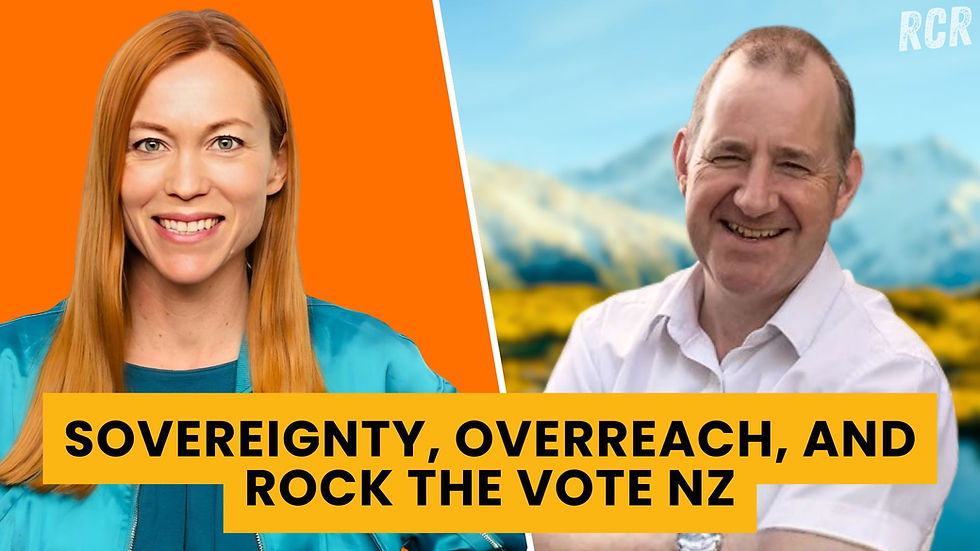“I’m Not Into Politics”
- Daddy Pig
- Sep 7, 2025
- 2 min read
Why That Statement Deserves a Second Look
By Andrew Crowley, Rock The Vote NZ Party Leader
It’s a phrase we’ve all heard—maybe even said ourselves: “I’m not into politics.” It rolls off the tongue like a disclaimer, a way to sidestep heated debates or signal disinterest in the circus of party lines and parliamentary squabbles. But beneath that casual dismissal lies a deeper truth: politics isn’t just about politicians. It’s about people

When someone says they’re not into politics, what they often mean is they’re not into political theatre—the shouting matches, the scandals, the spin. That’s fair. But politics, at its core, is simply the process by which we decide how we live together. Who gets what. Who pays for it. Who decides. Whether it’s the cost of groceries, the state of our roads, or the quality of our schools, politics is the invisible architecture shaping our daily lives.
So when someone says, “I’m not into politics”, I don’t argue. I ask. “What do you mean by that?”
Because often, they’re deeply passionate about issues—climate change, housing, education, fairness—but they don’t see those passions as political. That’s the disconnect. We’ve allowed politics to become a dirty word, divorced from the very things that matter most.
In my work with Rock The Vote NZ, I meet people every day who feel alienated from the political process. They’re not apathetic—they’re exhausted. Disillusioned. They’ve seen too many promises broken, too many voices ignored. And yet, they care. They care deeply. That’s why our mission isn’t just to get people to vote—it’s to reframe what politics is. It’s not a spectator sport. It’s a shared responsibility.
Here’s the truth: opting out doesn’t make politics go away. It just hands the microphone to those who shout the loudest. And often, those voices don’t represent the quiet majority. They represent vested interests, entrenched power, and a status quo that thrives on disengagement.
So what do we say to someone who’s “not into politics”? We listen. We empathize. And then we gently remind them: “Politics is like gravity. You don’t have to believe in it for it to affect you.”
I’d rather people told me about what really matters to them in their life rather than talking about politics or politicians.
We don’t need everyone to become policy experts or party loyalists. But we do need people to care—to speak, to vote, to show up. Because when they do, the system starts to reflect the people it serves. And that’s when real change becomes possible.
So the next time you hear someone say they’re not into politics, don’t dismiss them. Invite them in. Show them that politics isn’t just about politicians—it’s about us. Our values. Our communities. Our future.
And maybe, just maybe, they’ll realize they’ve been political all along. They just didn’t call it that.




Comments